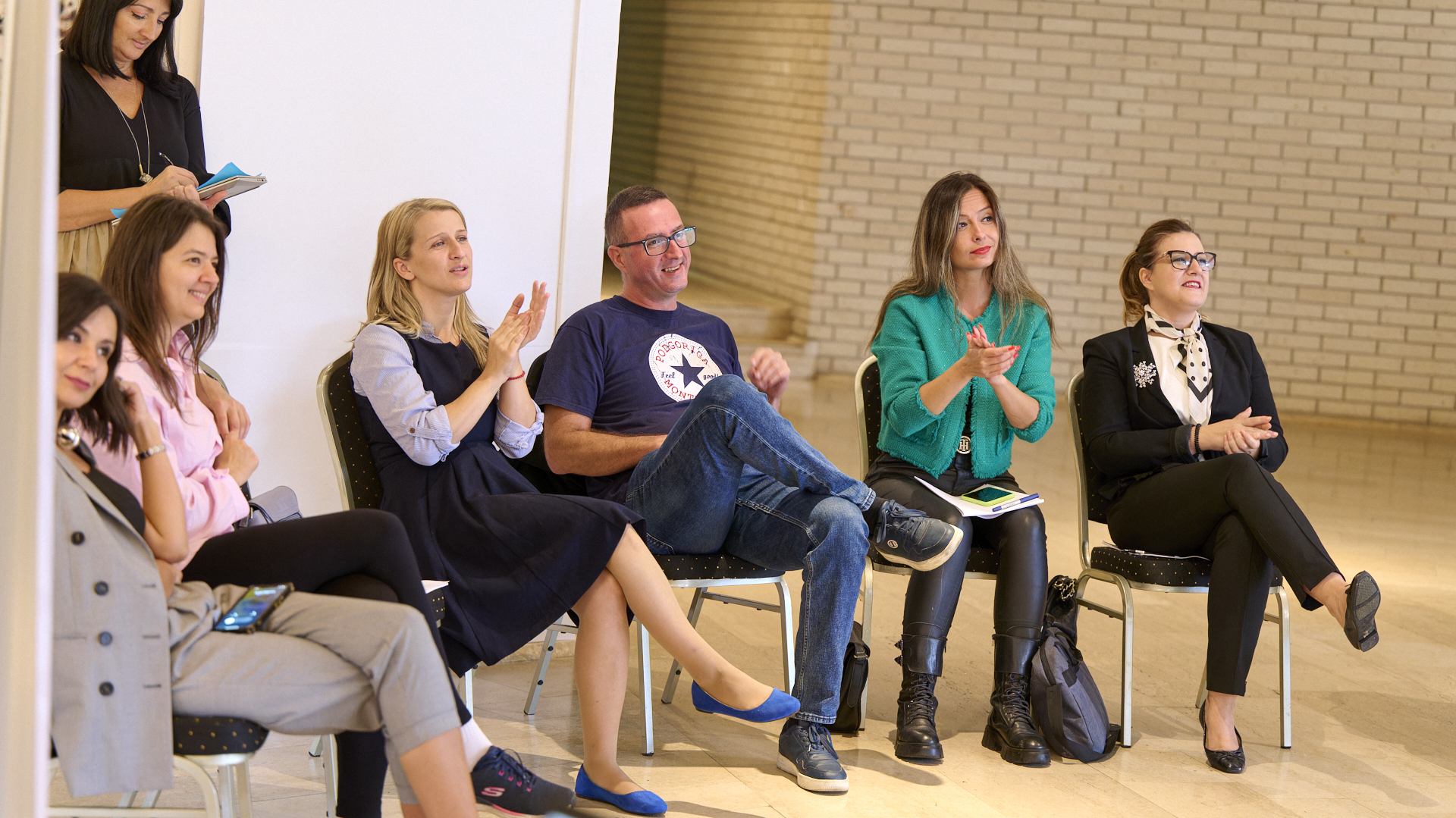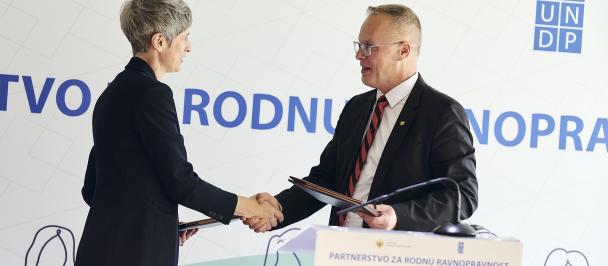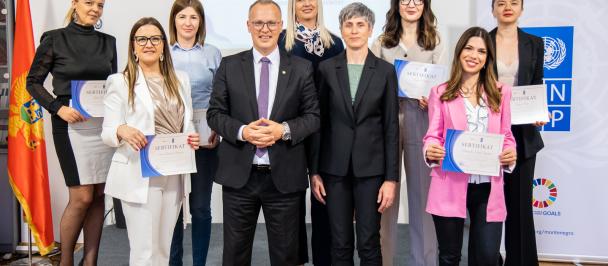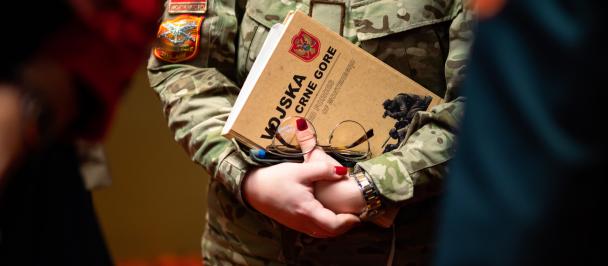A training session for trainers on gender-based hate speech was held
Empowering the public sector for the prevention of gender-based hate speech
November 3, 2023

Petrovac, 3 November, 2023 – Sexism, misogyny, and gender-based hate speech are not adequately recognized and prevented, leading to the normalization, justification, and relativization of various forms of gender discrimination. Strengthening human resources is a prerequisite for the development of an inclusive and tolerant society that is sufficiently sensitive to identify sexism and combat gender discrimination. Contributing to gender equality requires sustainable, united, and systemic solutions, making it essential to connect the capacities of different social actors into a unified vision for the fight for an egalitarian society with equal opportunities.
In Petrovac, a training on gender-based hate speech was organized by the United Nations Development Programme (UNDP) in Montenegro and the Human Recourses Management Authority. The purpose was to enhance the capacity of trainers from the Human Recourses Management Authority. Over the past months, trainers specializing in gender equality and communication acquired specific knowledge to prepare them for strengthening institutions and media as crucial social actors working to eliminate all forms of gender inequality.

Knowledge transfer is the ultimate goal of the training
Participant in the training and communication trainer, Dragana Unković-Maljević, stated that gender-based hate speech is often normalized and uncritically accepted. The cause of this is a lack of understanding of sexism, highlighting the importance of training for state officials so that they can first recognize, react to, and then influence others to prevent gender-based hate speech.
"Trainings like this are important for us to recognize and learn how to explain hate speech to someone else in the future. Gender equality is one of the crucial topics we need to discuss and educate ourselves about, especially those of us who will have the opportunity to transmit knowledge in our institutions. The ultimate goal is to raise awareness among as many people as possible about hate speech and to transmit European standards to improve penal policy in Montenegro."
It is important to emphasize preventive mechanisms
We must clearly define preventive strategies to more quickly combat gender discrimination and understand what a fair society is where everyone has equal opportunities to fulfill their potentials, emphasized gender equality trainer, Jelena Radenović.
"We need to define means as soon as possible to fight and prevent hate speech. It is important to create space to improve the legislative framework and connect different areas of society where everyone in their sphere will point out prevention mechanisms. It is crucial that our training group is composed of people involved in journalism and people who are trainers for gender equality in institutions, thus expanding capacities and uniting strategies."
Participants highlighted that everyone involved in the training can use the acquired skills for active engagement in building a just society where equal opportunities exist for all.
Communication trainer, Svetlana Mandić, stated that the media must have developed guidelines for gender-equitable reporting and should approach sexism in public discourse critically, not just transmitting it.
"The role of the media is significant because they can fuel hate speech, under the guise of merely reporting a certain speech. In doing so, they actually reinforce gender discrimination and should be actors helping to combat gender-based hate speech."
Training is a prerequisite for strengthening the public sector
Independent advisor in the Human Recourses Management Authority, Milica Nikolić, said that institutions have a responsibility to enhance the skills and knowledge of their officials.
"We strive to introduce gender equality topics that have significant societal importance to create not only an inclusive but also a just society where there will be no selectivity based on gender."
The training on gender-based hate speech is organized within the framework of the project of the "Promotion of dialogue and joint actions to combat hate speech", financed by UNDP Funding Window for Governance, Peacebuilding, Crisis and Resilience with contributions of Sweden and Luxembourg. The trainers at the training session were Aneta Spaić, Dean of the Faculty of Law; Kaća Đuričković, Team Leader at UNDP; and Marija Blagojević, Project Coordinator at UNDP.

 Locations
Locations






